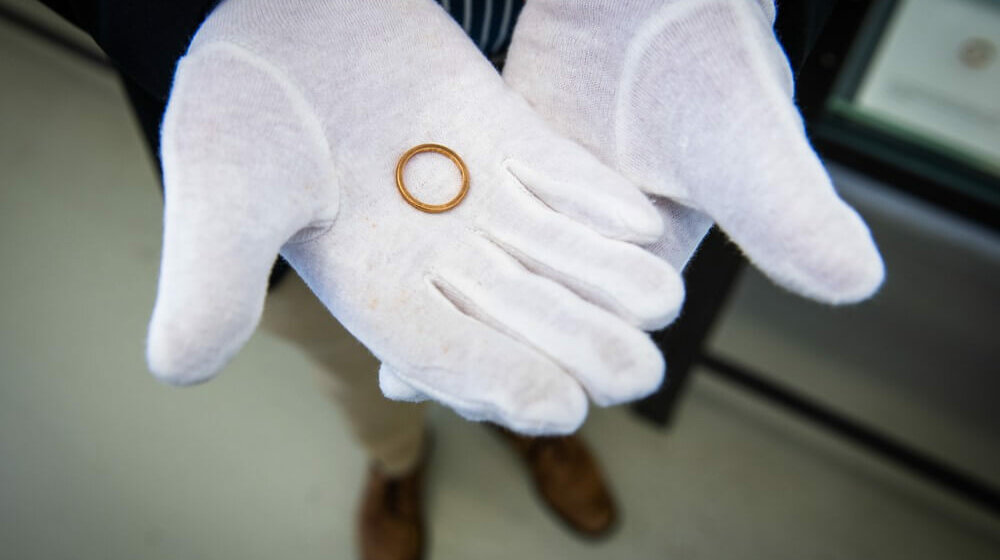Emergency Response Training at the ITS

“No matter how good the safety precautions are, you can never entirely rule out an accident in an archive. So it’s all the more important that we do everything in our power to prepare for a possible emergency,” explains Christian Groh, the head of the International Tracing Service (ITS) archive. In order to be able to respond quickly and appropriately in the case of an emergency in the archive, the ITS has a detailed emergency action plan in place. The preventive measures include regular staff training. In October, the conservator Jana Moczarski of the University and State Library Darmstadt carried out emergency response training with twenty members of the ITS staff. Guests from the Notfallverbund Kassel und Nordhessen (Kassel and Northern Hesse Emergency Network) also took part. The ITS and eleven other cultural institutions have been united in this network since 2016 for the purpose of helping each other out in a crisis.
“Safety first!” Moczarski stresses. Regardless of how valuable and unique the documents are, nobody should risk his or her life to save them. The real work doesn’t start until the fire has been extinguished or the inflow of water stopped. But then it has to go fast: depending on the weather, wet paper starts molding after 36 to 48 hours. And it’s a painstaking and expensive process to remove mold.
But how do you dry 26 running kilometers (more than 16 miles) of paper that have been drenched with fire water or water from a broken pipe? The answer is astonishing: if you freeze wet paper and books at a temperature of at least -20° C, you can carefully freeze-dry it afterwards—a relatively simple way of saving it. The ITS accordingly has a contract with a cold storage warehouse in the region as part of its emergency plan.
And among other things, the workshop participants learned and practiced the preparations for freeze-drying. Naturally, no original documents were used. It proved to be quite a challenge to handle the soaking wet paper, which is twice as heavy and far more fragile than dry paper. Water-swollen books were stabilized using gauze bandages; index cards were packed in easy-to-handle parcels.
Franziska Schubert, the ITS’s new emergency officer, was satisfied with the effort. “Our job is to preserve the unique documents pertaining to the victims of National Socialism. We hope very much that we’ll never face an emergency in our archive. But it’s a good feeling that the staff would know what to do if we did.”

